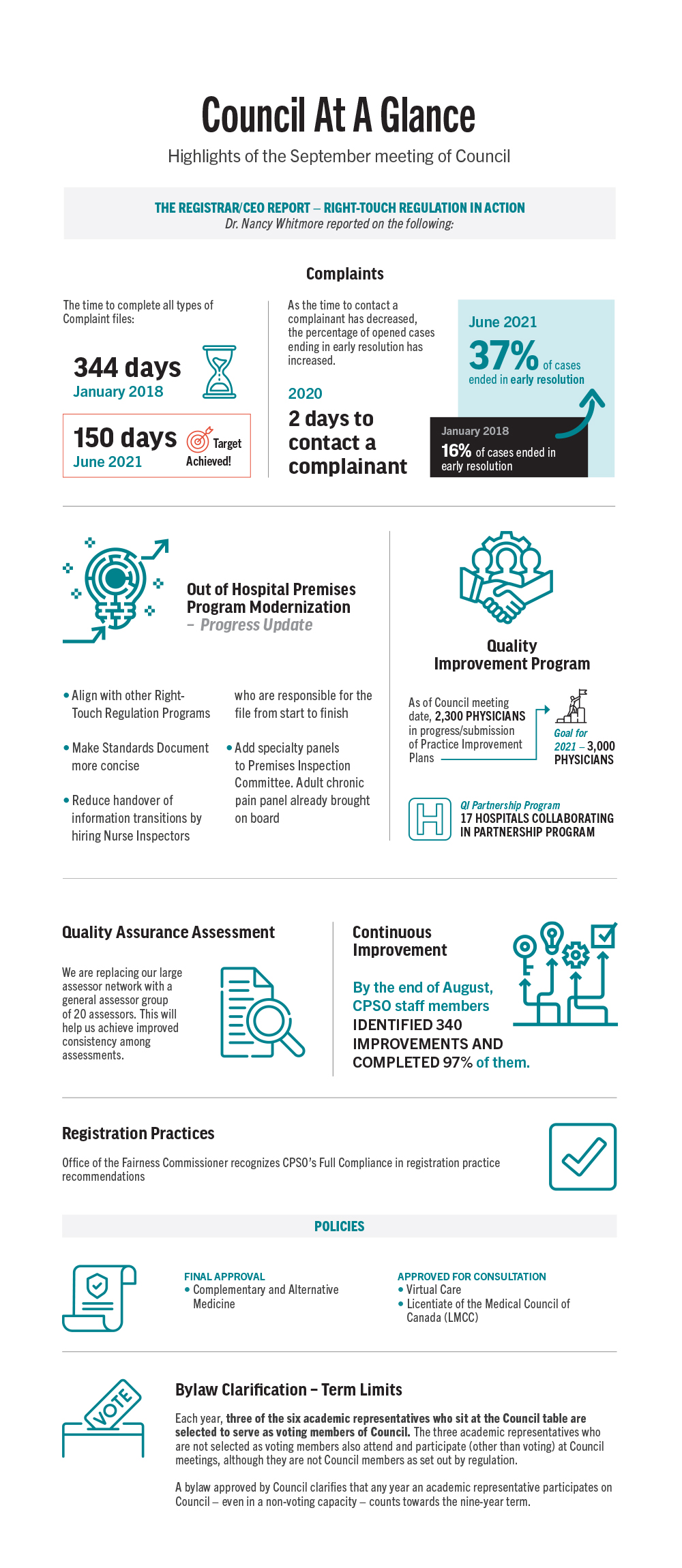The following are highlights of the September meeting of Council.

Council at a Glance infographic transcript
Registrar’s Report — Right-Touch Regulation in Action
Dr. Nancy Whitmore reported on the following:
Complaints
The time to complete all types of Complaint files:
- January 2018 — 344 days
- June 2021 — 150 days Target Achieved!
As the time to contact a complainant has decreased, the percentage of opened cases ending in early resolution has increased.
- 2020 — 2 days to contact a complainant
- January 2018 — 16 percent of cases ended in early resolution
- June 2021 — 37 percent of cases ended in early resolution
Out of Hospital Premises Program Modernization — Progress Update
- Align with other Right-Touch Regulation Programs
- Make Standards Document more concise
- Reduce handover of information transitions by hiring Nurse Inspectors who are responsible for the file from start to finish
- Add specialty panels to Premises Inspection Committee. Adult chronic pain panel already brought on board
Quality Improvement Program
As of Council meeting date, 2,300 physicians in progress/submission of Practice Improvement Plans
- Goal for 2021 — 3,000 physicians
QI Partnership Program
- 17 hospitals collaborating in partnership program
Quality Assurance Assessment
We are replacing our large assessor network with a general assessor group of 20 assessors. This will help us achieve improved consistency among assessments.
Continuous Improvement
By the end of August, CPSO staff members identified 340 improvements and completed 97 percent of them.
Registration Practices
Office of the Fairness Commissioner recognizes CPSO’s Full Compliance in registration practice recommendations.
Policies
Final Approval
Approved for Consultation
Bylaw Clarification - Term Limits
Each year, three of the six academic representatives who sit at the Council table are selected to serve as voting members of Council. The three academic representatives who are not selected as voting members also attend and participate (other than voting) at Council meetings.
A bylaw approved by Council clarifies that any year that an academic representative participates on Council — even in a non-voting capacity — counts towards the nine-year term limit.












